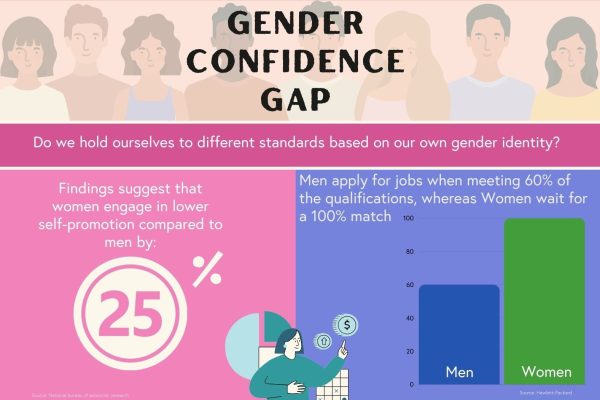Part 2: Behavioural and Cognitive Professional Development Report 2016
5 min read
Key trends that will affect professional services in 2016 and implications for firms
Part 1 of our Behavioural and Cognitive Professional Development Report 2016 presented the key research findings from our survey into the current state of behavioural and cognitive development in the professional services industry.
You can read Part 1 of our report here.
In Part 2 of this report, based on our research findings, we have determined the following key trends that will affect the professional services industry in 2016 and beyond and the possible implications for firms with regards to learning and development strategy, managing client relationships and behavioural change…
Introduction to the report
In 2015, hundreds of participants from some of the world’s top and best-known professional services firms attended our behavioural and cognitive development programmes.
The top professional services firms remain dedicated to improving the knowledge, experience and capabilities of their people and understand that investing in on-going professional development is fundamental to initiating behaviour change and to the future growth of their firm.
Following every programme we ask participants a set of questions about how they plan to embed the learning at their firms and what difficulties they anticipate in applying what they have learned.
Having analysed over a thousand participant responses to these questions over the past year, we have been able to gain a snapshot of the key issues facing the top professional services firms in the world today with regards to professional development and behaviour change. Please note that the analysis gives equal weight to each respondent, whatever the size of the firm and is essentially a sentimental survey, with all the strengths and weaknesses of such an approach.
Part 2: Key Trends and Implications
1. Competition for talent remains fierce. Use on-going training and development to remain a destination of choice for top performers
Competition for talent in professional services remains fierce. In order for firms to hold on to their top talent or to remain a destination of choice for top performers, employees must remain engaged and motivated. Career progression through on-going learning and development will be crucial for firms to realise these ambitions.
2. Developing cognitive and behavioural skills is as important as refreshing technical knowledge and should not be seen as a discretionary spend
Working in professional services is about dealing with ‘people’ and their unique emotions, needs, ambitions and desires. Firms need to recognise that, in order to succeed, their employees need to learn, practise and use ‘Human’ skills – cognitive and behavioural – to communicate and influence clients.
While many firms ensure that technical knowledge is kept up to date (often to maintain CPD points), cognitive and behavioural training should not be seen as a discretionary spend. Two recent surveys have found that only 5% of professional services firms plan to invest in training to drive the growth of their firm in 2016.
3. Success in professional services is now about adopting an ‘advisory’ approach and finding new value for clients. The cognitive and behavioural skills required to achieve this ambition are not intuitive
A true ‘advisory’ approach in professional services should be about finding new value for clients, new growth opportunities, offering fresh perspectives and new ideas and solving complex problems based on client needs. Often clients do not even know themselves what new value or solutions they are searching for.
The skills, tools and strategies required to undertake a consultative or ‘advisory’ approach with clients do not come naturally for many in professional services but will need to be learnt, practised, developed, modelled and refined if this approach is to be embraced.
4. Clients are more knowledgeable than ever. How employees perform in critical ‘moments of truth’ will define your business performance and brand
More knowledgeable clients combined with a more competitive environment mean that how your employees behave in certain moments of truth (meetings, presentations, critical conversations) will define your firm’s success. Firms should put significant resources into ensuring that their employees have learnt and then practised (in a simulated environment) the key behaviours required to thrive in these critical situations.
5. Professional services firms should develop a consistent analytical approach to resist any perceived commoditisation of their services
Among their employees, firms need to develop a flexibility of mind-set that allows them to offer unique points of view, think critically and communicate messages clearly to clients. In 2016 firms should strive to develop a consistent analytical approach with a common language throughout the organisation.
Firms who do not adopt an analytical thinking approach with clients but instead provide analogous, rigid, pre-determined outputs will see the value of their services diminish towards the commodity end of the spectrum.
6. Traditional metrics of professional services performance ensure prevailing cultures remain. As a result, firms will struggle to change behaviours
Many firms say they want to adopt a more ‘advisory’ approach and help find new value for their clients. Unfortunately, prevailing cultures and associated behaviours in many professional services firms are dictated by traditional, short-term metrics that hinder behaviour change – such as hours billed and utilisation and recovery rates.
In 2016, firms could investigate adapting their metrics to be consistent with behavioural change proposals. This will help to act as a catalyst for cultural change within the organisation. For example, there should be incentives for coaching, mentoring, modelling and feedback activities. As long as the focus remains on traditional ‘output-driven’ metrics, behaviours will not change and solutions offered to clients will be closer to standardised, unoriginal, commoditised products.
7. Leaders and senior managers have to embody new behaviours from the top. Only then can cultural change really happen
Leadership teams and senior management buy-in is essential if new processes and behaviours are to be embedded and training is to be successful. Leaders have to personally embody and model the behaviours they want to see adopted and allow employees to practise and utilise the tools and strategies they have learned.
Participants often tell us that there remains a misalignment between the new behaviours they have been trained in and both how their performance is measured and the behaviours that continue to be used by senior management. As a result, employees who have attended a training programme are not given the opportunity to practise and develop the behaviours they have learned. In contrast to ‘knowledge’, for new ‘skills’ to be effective they must be practised, experienced and refined.
8. Employees have to take personal responsibility for ensuring behaviour change. Training should not be viewed as a standalone ‘learning event’
Training should not just be a standalone event but it should be based on a coherent and agreed strategy for behavioural and subsequently cultural change. In order for behaviour to change, participants must personally commit to apply new learning and embody behaviours for their colleagues to witness, imitate and copy. Ensuring behaviours are embedded and training outcomes are positive should not just be seen as the responsibility of the training company.
9. Digital, analytics, big data and new technologies will continue to dominate agendas for professional services firms. Develop ‘bilinguals’ who understand complex areas but also communicate in business language
The rise and impact of ‘digital’, ‘analytics’, ‘big data’ and other technological advances will continue to be top of the agenda for many professional services firms in 2016. Firms should be aware that specialist employees working in these complex areas need to understand and speak the language of the business, which might not come naturally to technical experts.
We would advise firms to invest in developing ‘bilinguals’ with the requisite cognitive and behavioural skills to firstly formulate points of view and secondly communicate these insights in a way that they can be understood and implemented by clients.
10. How to develop and manage Millennials should remain high on the agenda for professional services firms. Millennials are the future leaders of your firm but key skills are lacking
Why should professional services firms continue to be concerned about developing their millennial employees in 2016? Firstly, because of the fundamental role Millennials will play in the future growth of the firm. They will be responsible for ideas, strategy, relationships and growth of the firm. Unfortunately, the core ‘human’ skills and behaviours required to succeed in a professional services environment remain lacking and under-developed among the millennial generation.
Secondly, Millennials have their own unique attitudes and distinct values sets as result of the socio-economic and technological environment within which they have been raised. Millennials want to learn and they want to work hard but they just want to learn and work differently from previous generations and they want to see commitment from their employer. Firms need to determine whether their traditional culture is compatible with the unique attitudes of their Millennials.



